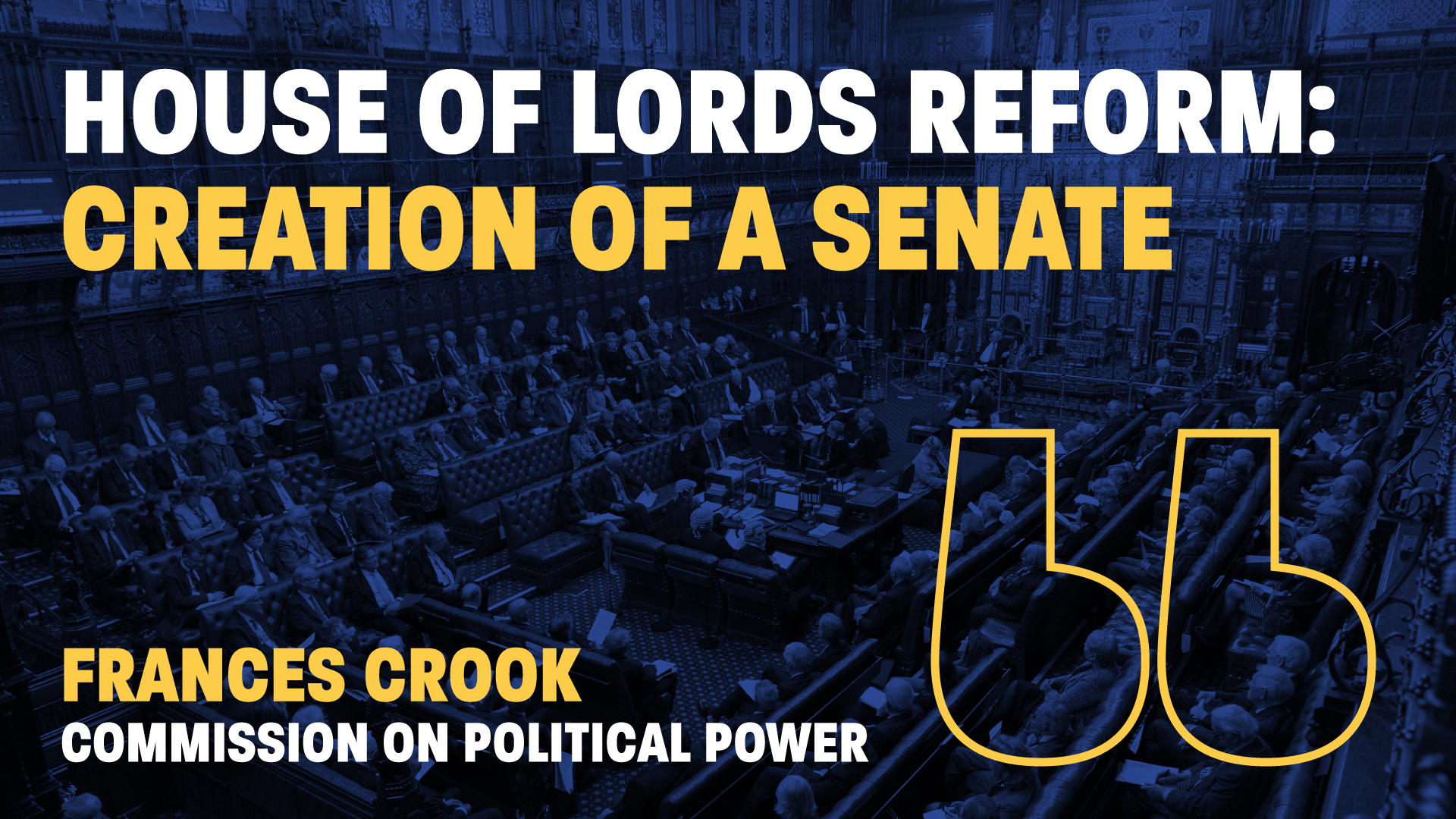House of Lords Reform: Creation of a Senate

Recent appointments by former prime ministers of their cronies to sit in the House of Lords has brought our legislative process into disrepute. Indeed it has been made to look corrupt and ridiculous. This cannot be allowed to continue.

There is an irony in the fact that the House of Lords is currently the only part of our central government that is functioning reasonably well and upholding the rule of law, citizens’ rights and the constitution in any way. The abject failure of the Commons to hold the overwhelming power of the executive and the prime minister to account means that the Lords is left to struggle on alone. Nevertheless, it is likely to be the only part of central government that is facing reform as Labour is committed to change, so we need to think about how to do that by retaining the elements that do a good job and enhancing its legitimacy.
What works well in the Lords is the expertise and independence of the cross bench peers who are not accountable to party whips or political party lines. Many have had long and illustrious careers in the law, medicine and local government. They bring that experience to holding the government to account and to scrutinising legislative proposals. We need to keep this.
The Commission on Political Power, which I set up jointly with Baroness Frances D’Souza, the former Lords Speaker, has published a short paper setting out some ideas of how we can retain this expertise and independence and at the same time bring some democratic accountability to a newly formed body.
Democratic accountability does not necessarily have to come from direct elections.
Democratic accountability does not necessarily have to come from direct elections. Indeed elections involving the population voting either through constituencies or via some form of proportional representation both involve political parties selecting candidates and then telling their people what to do. A more diffuse web of democracy where people are elected in different ways might provide a better form of representation.
We suggest considering a hybrid house, a Senate, that contains people elected to represent the regions and localities by virtue of the fact that they have already been elected locally. Gordon Brown’s report for the Labour Party posited regional representation in a version of the Lords but we think this could be achieved by giving the metro mayors and a revolving selection of local council leaders an automatic right to sit in the Senate. They have been elected and have a mandate to represent local residents and they would bring a strong sense of local distinctiveness to the Senate.
A second cohort could be people already elected to lead professional bodies and trades unions. The head of the BMA, the TUC and the Institute of Directors could join scientific and academic leaders in the Senate, bringing up to date and wide ranging expertise. Again, these are people who have been elected and have a mandate to represent sections of the community.
These people might sit part time, continuing to work at their other jobs, so that they bring up to date expertise and experience.
Most organisations looking at reform of the Lords have supported the idea of putting the appointments commission on a statutory footing. There would need to be clear criteria for candidates so that they can demonstrate their conspicuous merit and ability to carry out the functions and responsibilities of a legislative body.
Members of the public may already put themselves forward for consideration to be appointed to the Lords but this should be properly promoted.
Most importantly it must be made clear that the Senate is not a boozy club, but a serious part of the legislative process. Its purpose should be to uphold and protect the constitution and the rights of citizens, to hold the government to account, to scrutinise and improve legislation and to provide expertise and wisdom.
Our democracy is in a mess. Reform of one chamber of Parliament is not going to fix it.
Government is a serious business and needs serious people with expertise and knowledge. Making laws is really complicated and it needs to be done carefully and legislators need administrative and research support.
Our democracy is in a mess. Reform of one chamber of Parliament is not going to fix it. The disarray at the heart of our government is the executive and excessive power lying with the prime minister and the weakness of the Commons. Nevertheless, piecemeal reform of at least one part of the constitutional settlement looks like it is on the agenda for the Labour party, likely to be the in-coming government. This needs to be done right.